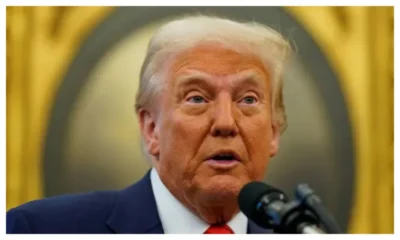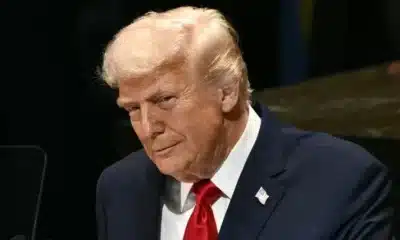As Nigeria marks her 65th Independence on Oct. 1, stakeholders in Anambra, Enugu and Ebonyi States have bared their minds on the state of the nation.
They spoke to the News Agency of Nigeria (NAN) in separate interviews in their reactions to mark Nigeria’s 65th Independence Day.
In his contribution, an Anambra-based lawyer, Mr Stanley Okafor,, said there was the need for a national “Revolution of Conduct” to address Nigeria’s deepening political, judicial and societal challenges.
Okafor, who is the President of the Leadership Orientation and Basic Rights Advocacy Centre (LOBRAC), expressed concern over the growing distrust in key democratic institutions, particularly the judiciary.
The legal practitioner lamented what he described as the “erosion of public confidence” in the judiciary, which he said, no longer served as the ‘last hope of the common man’.
According to him, the rule of law is increasingly being undermined due to a lack of accountability and patriotism.
“It is commendable that Nigeria’s corporate existence has remained intact despite numerous challenges.
“These social, economic and political difficulties are part of nation-building.
“However, it is unfortunate that many political leaders continue to prioritise personal interests over national interest,” Okafor said.
Also speaking, Prof. Chris Abakare, a lecturer at the Nnamdi Azikiwe University, Awka, decried the state of the country’s education sector, saying that it was far from where it ought to be.
He highlighted the strides and setbacks in the country’s education system, calling for urgent reforms to ensure quality learning for future generations.
Abakare also highlighted the disparity between the global success of individual Nigerians and the systemic failures within the country’s education system.
According to him, the systemic challenges had continued to hinder national development.
“Collectively, Nigeria’s education sector is not where it is supposed to be, but individually, we are there already.
“When you go to the Ivy League universities and other top institutions around the world, you see Nigerians excelling but coming back home, the story is different,” he said.
Abakare pointed to chronic underfunding of the education sector by successive governments as a major challenge.
He said that Nigeria had consistently failed to meet the United Nations’ recommended 26 per cent budgetary allocation for education.
“The highest Nigeria has ever allocated to education is eight per cent,” he added.
Abakare raised concerns about the longstanding grievances of the Academic Staff Union of Universities (ASUU), warning of another potential strike if unresolved issues persisted.
He said: “We have a situation where a 16-year-old agreement between the government and university lecturers has not been implemented.
“Lecturers have been on the same salary scale for 16 years. That kills morale and is driving many academics abroad in search of better opportunities.
Abakare, however, believes there is still hope in spite of the bleak outlook.
“At 65, it is not yet Uhuru for our education sector, but if lecturers are motivated, that motivation will trickle down to the growth of students. Motivation is the key.
“There is an urgent need for reforms to halt the sector’s steady decline,” he said.
In a related development, a Policy Analyst and industrialist, Mr Chinedu Nwonu, says Nigeria’s economy is stabilising under the current administration but warned against rising insecurity and unsustainable debt levels.
Nwonu,1st Deputy President, Onitsha Chamber of Commerce, Industry, Mines and Agriculture (ONICCIMA), however, acknowledged the country’s resilience since gaining independence in 1960,
According to him, Nigeria had experienced both economic highs and lows under successive governments.
“Looking at the present administration, I can say that since the second quarter, we have seen some elements of growth in the economy.
“We have recorded positive trends in the gross domestic product (GDP), a stabilising exchange rate, declining food prices, fuel prices are stabilising we are no more talking about scarcity
“Generally, I will say that Nigeria’s economy is stabilising; this can help people plan, and if things continue this way, we have cause to cheer.”
In spite of the progress, Nwonu expressed serious concern over the country’s worsening security situation warning that it posed a significant threat to long-term economic stability.
“Insecurity is still a big challenge, and data shows that it is increasing despite the government’s prognosis.
“So long as there is insecurity, it will invariably affect every aspect of the economy,” he said.
He also highlighted the persistent issues in the power sector, which he said were crippling industrial growth and forcing companies to shut down or leave the country.
“Without steady power supply, industries will not function well. They won’t be able to pay taxes, and this will lead to unemployment, which can further fuel insecurity,” he warned.
Also speaking, the Leader of the Progressives Group in Enugu State, Dr Ben Nwoye, says President Bola Tinubu’s Renewed Hope Agenda (RHA) is working and touching all sectors of the country.
Nwoye, who was the immediate past Chairman of All Progressives Congress (APC) in the State, noted that Tinubu had done well in stabilising the economy after about a decade.
He said that Tinubu’s solid security and community relationship architecture had led to the decline in crude oil theft, crude oil production disruption and increased crude oil production.
He also applauded the current administration for continuous decline on food inflation, which was previously “a national headache”.
According to him, these evidence-based achievements were an indication that the reforms put in place by the present administration were working.
He said: “Rome was not built in a day; so, Nigeria will not be built in a day.
“The positive impact of the Renewed Hope Agenda is touching all sectors.
Meanwhile, an Enugu-based lawyer, Mr Nnamdi Ezemagu, noted that in spite of many years of independence, Nigeria had yet to demonstrate clear separation of power among the executive, legislature and the judiciary.
According to him, it is a fact that the judiciary is not independent as legislators are subordinates of the executive.
He said that in the face of impunity and misnomer in the society, the judiciary should stand tall and make their pronouncements.
On the economy, Ezemagu said the Federal Government had robust policies but lacked framework and implementation to properly guide and coordinate them.
In Ebonyi, some stakeholders urged the Federal Government to intensify efforts in stabilising key sectors to improve the welfare of citizens.
Mr Chinedu Okafor, a public affairs analyst, said the economy had shown signs of resilience in spite of daunting challenges.
“Nigeria has survived six and a half decades as a sovereign nation.
“The economy has recorded modest growth in agriculture, telecommunications and the creative industry.
“But inflation, unemployment and foreign exchange volatility remain serious concerns that require urgent reforms,” Okafor said.
On security, Mazi Chidike Ukoh, the Lead Convener, Civil Society Support for Igboland Development, said the present government was making an effort to secure Nigeria, stressing the need for political leaders to make security central in all they do.
He called on citizens to collaborate with government to win war against various crimes in the country to achieve relative peace while government should train and equip of vigilantes to provide security in communities.
“Government should establish state policing and security network ought to be built from the rural setting.
“At 65, Nigeria shouldn’t be battling with this type of insecurity overwhelming us as if it is no longer the Nigeria known around the world for peacekeeping and security enforcement,” he said.
In a related development, Mrs Ngozi Nworie, a businesswoman, said that many small and medium enterprises were struggling to survive under harsh economic realities.
“The cost of goods and services has skyrocketed and this affects both traders and consumers.
“While government has rolled out palliative measures, the impact on the ground is still minimal.
“What we need are policies that will strengthen production and reduce overdependence on imports,” she said.
Dr Samuel Ogbu, a lecturer in the Department of Economics, Ebonyi State University, Abakaliki, said the nation must prioritise industrialisation and invest in human capital to unlock sustainable growth.
“At 65, Nigeria should have gone beyond being a mono-economy dependent on crude oil.
“We need massive investment in education, infrastructure and technology; these are the drivers that will reposition our economy for competitiveness in the global market,” Ogbu said.
Nigeria got it’s Independence on Oct. 1, 1960 and subsequently because Republic in 1963.

 NEWS2 years ago
NEWS2 years ago
 MUSIC4 years ago
MUSIC4 years ago
 MUSIC4 years ago
MUSIC4 years ago
 MUSIC2 years ago
MUSIC2 years ago

















